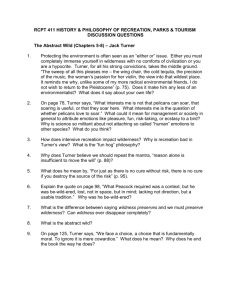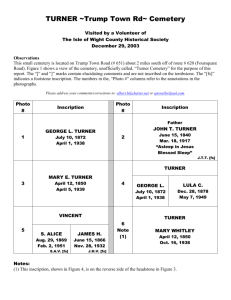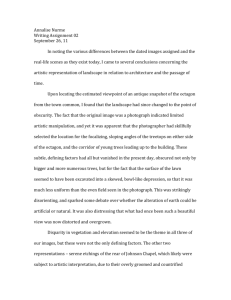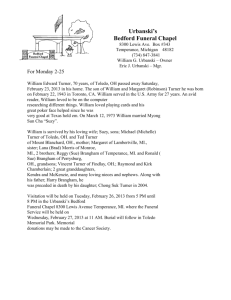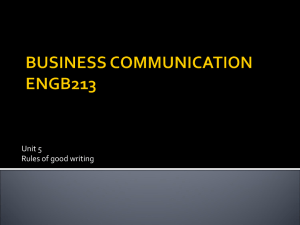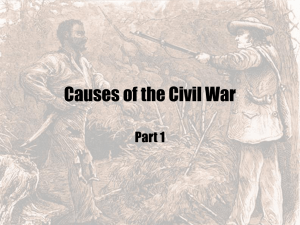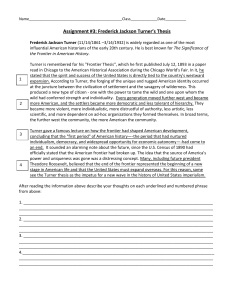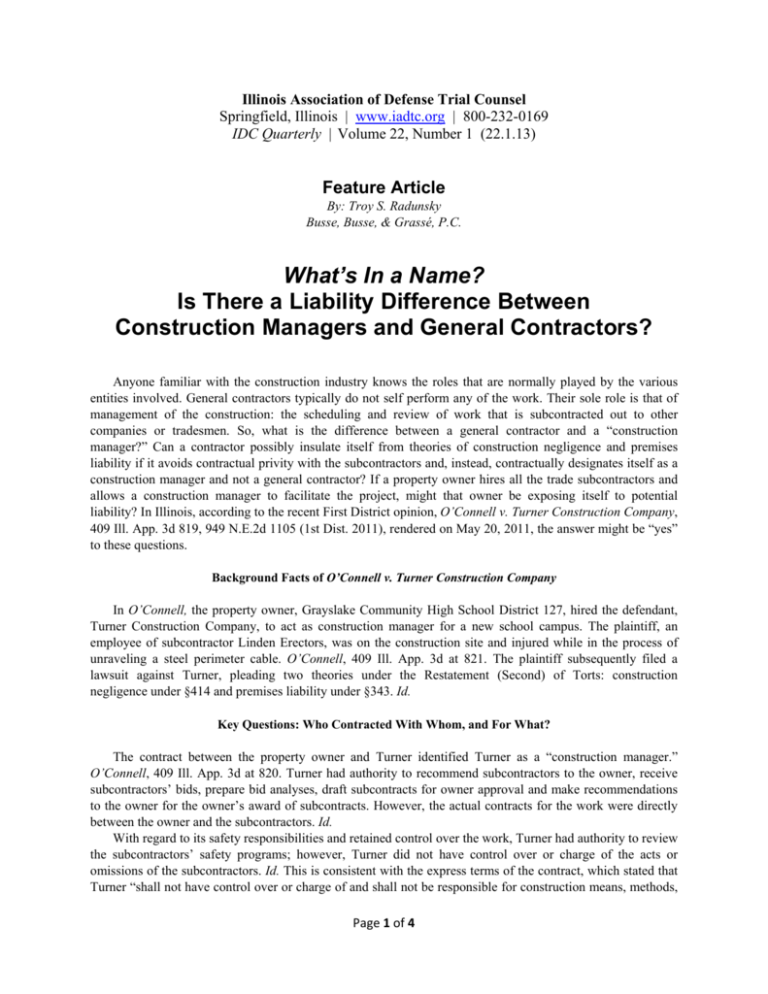
Illinois Association of Defense Trial Counsel
Springfield, Illinois | www.iadtc.org | 800-232-0169
IDC Quarterly | Volume 22, Number 1 (22.1.13)
Feature Article
By: Troy S. Radunsky
Busse, Busse, & Grassé, P.C.
What’s In a Name?
Is There a Liability Difference Between
Construction Managers and General Contractors?
Anyone familiar with the construction industry knows the roles that are normally played by the various
entities involved. General contractors typically do not self perform any of the work. Their sole role is that of
management of the construction: the scheduling and review of work that is subcontracted out to other
companies or tradesmen. So, what is the difference between a general contractor and a “construction
manager?” Can a contractor possibly insulate itself from theories of construction negligence and premises
liability if it avoids contractual privity with the subcontractors and, instead, contractually designates itself as a
construction manager and not a general contractor? If a property owner hires all the trade subcontractors and
allows a construction manager to facilitate the project, might that owner be exposing itself to potential
liability? In Illinois, according to the recent First District opinion, O’Connell v. Turner Construction Company,
409 Ill. App. 3d 819, 949 N.E.2d 1105 (1st Dist. 2011), rendered on May 20, 2011, the answer might be “yes”
to these questions.
Background Facts of O’Connell v. Turner Construction Company
In O’Connell, the property owner, Grayslake Community High School District 127, hired the defendant,
Turner Construction Company, to act as construction manager for a new school campus. The plaintiff, an
employee of subcontractor Linden Erectors, was on the construction site and injured while in the process of
unraveling a steel perimeter cable. O’Connell, 409 Ill. App. 3d at 821. The plaintiff subsequently filed a
lawsuit against Turner, pleading two theories under the Restatement (Second) of Torts: construction
negligence under §414 and premises liability under §343. Id.
Key Questions: Who Contracted With Whom, and For What?
The contract between the property owner and Turner identified Turner as a “construction manager.”
O’Connell, 409 Ill. App. 3d at 820. Turner had authority to recommend subcontractors to the owner, receive
subcontractors’ bids, prepare bid analyses, draft subcontracts for owner approval and make recommendations
to the owner for the owner’s award of subcontracts. However, the actual contracts for the work were directly
between the owner and the subcontractors. Id.
With regard to its safety responsibilities and retained control over the work, Turner had authority to review
the subcontractors’ safety programs; however, Turner did not have control over or charge of the acts or
omissions of the subcontractors. Id. This is consistent with the express terms of the contract, which stated that
Turner “shall not have control over or charge of and shall not be responsible for construction means, methods,
Page 1 of 4
techniques, sequences or procedures, or for safety precautions and programs in connection with the Work of
each of the Contractors since these are solely the Contractor’s responsibility under the Contract of
Construction.” Id.
In plaintiff’s third amended complaint, the plaintiff alleged that Turner was liable for his injuries because
Turner “exercised significant operational and/or supervisory control over the trade contractors, particularly
with respect to safety, but also as to details of construction means and methods.” O’Connell, 409 Ill. App. 3d at
821. Turner refuted these allegations and successfully moved for summary judgment on both counts. In its
motion, Turner argued that it never entrusted work to Linden, an independent contractor, sufficient to impose
liability under the Restatement §414. Moreover, Turner further maintained that it had no liability under the
Restatement §343 because it had never possessed the premises. Id. at 823.
No Entrustment of Work by One Who Never Controlled the Work
The appellate court undertook an evaluation of the plain language of the Restatement (Second) of Torts
§414, and discussed whether Turner retained control over Linden’s work. The appellate court reiterated that
the Restatement (Second) of Torts §414 provides a cause of action where:
One who entrusts work to an independent contractor, but who retains the control of any part of the
work, is subject to liability for physical harm to others for whose safety the employer owes a duty to
exercise reasonable care, which is caused by his failure to exercise his control with reasonable care.
O’Connell, 409 Ill. App. 3d at 822 (emphasis in original).
The court noted that the prerequisite for triggering liability under §414 is that there be an entrustment of
work to an independent contractor. Id. In O’Connell, because the owner, not Turner, had hired Linden (and all
other subcontractors) pursuant to a written contract, Turner never entrusted any work to Linden. Id. at 823. As
the owner had never turned control of the project over to Turner, Turner could have never entrusted work to
Linden. Id. Put simply, Turner legally cannot entrust what it never possessed. Id.
Because the plaintiff had not met the threshold requirement of demonstrating that Turner entrusted work,
the court did not need to consider whether Turner retained or otherwise exercised control over the safety of
Linden’s work. Id. In addition, the court carefully distinguished several appellate court cases cited by the
plaintiff, on the basis that “noting that those cases focused on retained control as the determining factor for
liability, there, unlike in this case, the parties’ relationship, entrustment, was not at issue.” Id.
Therefore, because the plaintiff was unable to demonstrate that Turner entrusted work to Linden, §414 was
inapplicable and the undertaking of a more detailed analysis of whether Turner exercised or retained control
over the safety of the work, was unnecessary. Id.
Managing a Jobsite or Performing Construction Related Activities
Does Not Necessarily Constitute Possession With Intent to Control The Premises
The O’Connell court then turned its attention to whether Turner could be held liable under §343 and
§328E of the Restatement (Second) of Torts. Section 343 sets forth circumstances where a landowner or
possessor of land can be subject to liability. O’Connell, 409 Ill. App. 3d at 823. In this case, the plaintiff
generally argued that because Turner had performed various construction activities on the land, “’had general
responsibility for safety on the project’” and was responsible for coordinating the subcontractors work, its
actions triggered liability under §343 and §328E. Id. at 825.
In carefully analyzing the plaintiff’s allegations, the court initially recognized the general principles
outlined in §328E and §343E. Section 343E defines a possessor of land as “a person who is in occupation of
the land with intent to control it.” RESTATEMENT (SECOND) OF TORTS § 343E(a) (1965). In addition, when
Page 2 of 4
considering the application of §343E(a), the court reiterated a long standing principle in Illinois that before
premises liability can attach the defendant must be “an occupier of land with the intent to control it.”
O’Connell, 409 Ill. App. 3d at 824. The O’Connell court remarked that “the person in possession of property
ordinarily is in the best position to discover and control its dangers, and is often responsible for creating them
in the first place.” Id. (citing Madden v. F.H. Paschen/S.N. Nielson, Inc., 395 Ill. App. 3d 362, 375, 916 N.E.2d
1203, 1213 (1st Dist. 2009)).
The O’Connell court also examined other recent appellate court decisions that defined “possession” as
well as the phrase “occupation of land with intent to control it.” Id. at 824. In those cases, the court held that
“possession” has been defined in relevant part as “[t]he fact of having or holding property in one’s power; the
exercise of dominion over property.” Id. (citing BLACK’S LAW DICTIONARY 1281 (9th ed. 2009))(emphasis in
O’Connell). By comparison, with respect to the word “occupation,” the court remarked that §328E and §343
did not define the term, though Black’s Law Dictionary did. Id. Under the Black’s Law Dictionary definition
the term “occupancy” is defined as:
The act, state, or condition of holding, possessing, or residing in or on something; actual possession,
residence, or tenancy, esp. of a dwelling or land. In this sense, the term denotes whatever acts are done
on the land to manifest a claim of exclusive control and to indicate to the public that the actor has
appropriated the land. Hence, erecting and maintaining a substantial enclosure around of tract of land
constitutes occupancy of the whole tract.
Id. (citing BLACK’S LAW DICTIONARY 1184 (9th ed. 2009))(emphasis in O’Connell).
With these legal definitions in mind, the court then undertook a detailed analysis as to whether Turner’s
conduct triggered liability under a premises liability theory. Id. at 825. The court held Turner’s conduct did not
rise to that level. Id. at 826.
The court held that Turner was not a “possessor” of the land with the authority to exclude any persons
from the premises, and that the “Restatement recognizes that a person may conduct activities on the land or be
in charge of the land without being a possessor.” Id at 825. Significantly, the court reasoned that “the plaintiff
has not provided any evidence here indicating that Turner controlled or intended to control the land at issue, as
opposed to the individuals and activities thereon.” Id. at 826. Moreover, the court held that, “[t]here is also no
basis for concluding that Turner’s authority, if any, was intended to or ever exceeded that of the School
District.” Id. Because the plaintiff had not provided any evidence that Turner possessed, controlled or intended
to control the land, as opposed to the individuals and activities thereon, the plaintiff had no viable cause of
action under a premises liability theory. Id.
Conclusion
The question of whether O’Connell will apply outside the First District remains to be seen. Presently, it is
certain that every attorney involved in construction projects, where contracting before the first spade of dirt is
turned, or in litigating responsibility for all-too-common on the job injuries, must have a firm grasp of the
critical legal theories and rationales discussed in this important decision. In the future, litigators might expect
to see a rise in general contractors attempting to style themselves as “construction managers” in an attempt to
avoid liability, either before or after the fact. The precise relationships of every job should be carefully
scrutinized to determine who has contracted to retain control of the work, and to whom (if anyone) have they
entrusted that work. Ultimately those issues may be far more important than the generic labels applied to the
parties. Attorneys representing owners might caution them against hiring construction managers instead of
general contractors, since owners could potentially be exposed to liability. In the wake of this important
decision, one can easily envision a day where owners may refuse to hire construction managers altogether and
only hire general contractors.
Page 3 of 4
About the Author
Troy S. Radunsky is an attorney with the firm of Busse, Busse, & Grassé in Chicago, Ilinois where he concentrates his practice in the area of
construction litigation and general defense. Mr. Radunsky received his J.D. from the John Marshall Law School in 1999 and his B.A. in Political
Science with honors from Arizona State University in 1994. He practices in both Ilinois federal and state courts. Mr. Radunsky is a member of
the IDC and Ilinois State Bar.
About the IDC
The Illinois Association Defense Trial Counsel (IDC) is the premier association of attorneys in Illinois who devote a substantial portion their
practice to the representation of business, corporate, insurance, professional and other individual defendants in civil litigation.
For more information on the IDC, visit us on the web at www.iadtc.org.
Statements or expression of opinions in this publication are those of the authors and not necessarily those of the association.
IDC Quarterly, Volume 22, Number 1. © 2012. Illinois Association of Defense Trial Counsel. All Rights Reserved. Reproduction in whole or in
part without permission is prohibited.
Illinois Association of Defense Trial Counsel, PO Box 3144, Springfield, IL 62708-3144, 217-585-0991, idc@iadtc.org
Page 4 of 4

